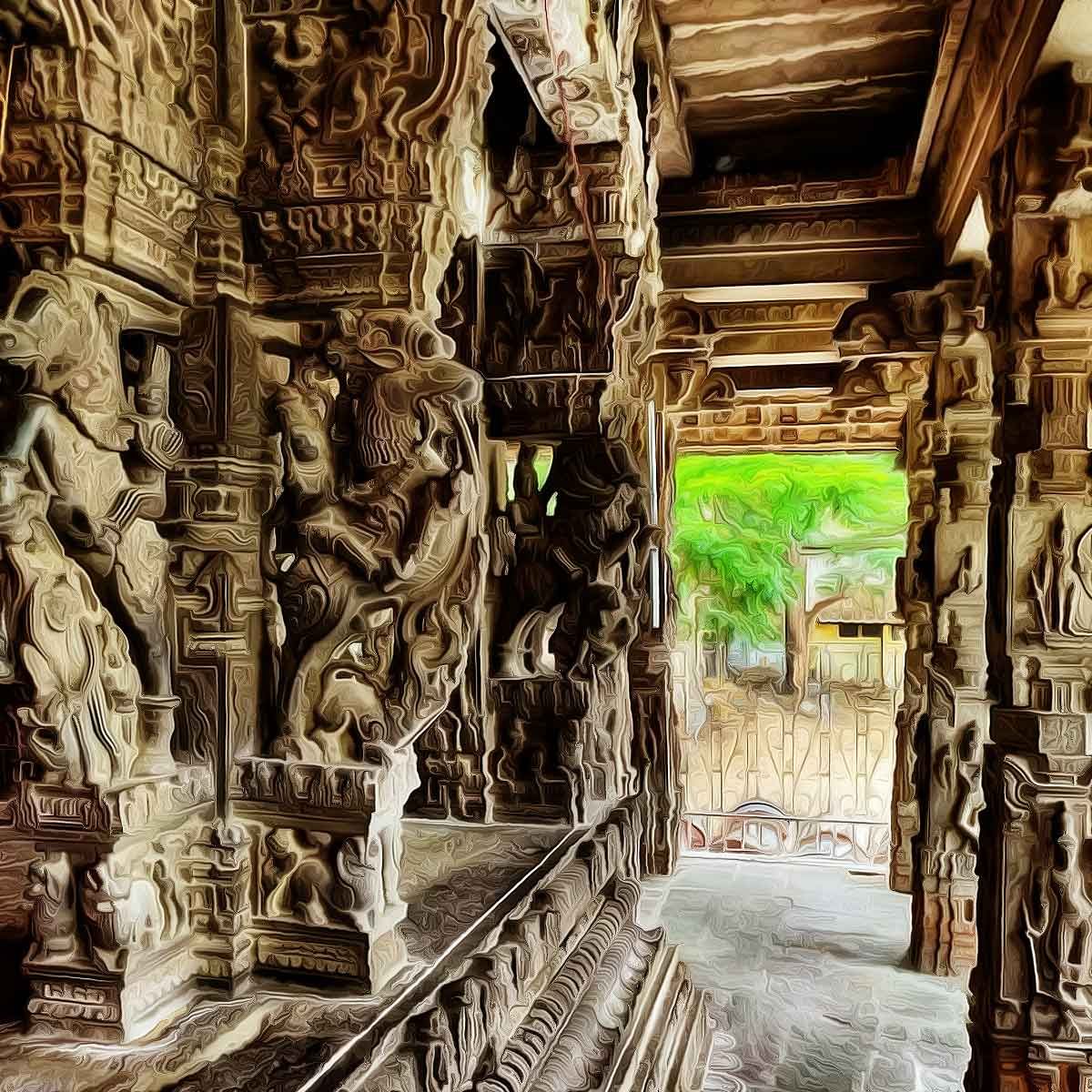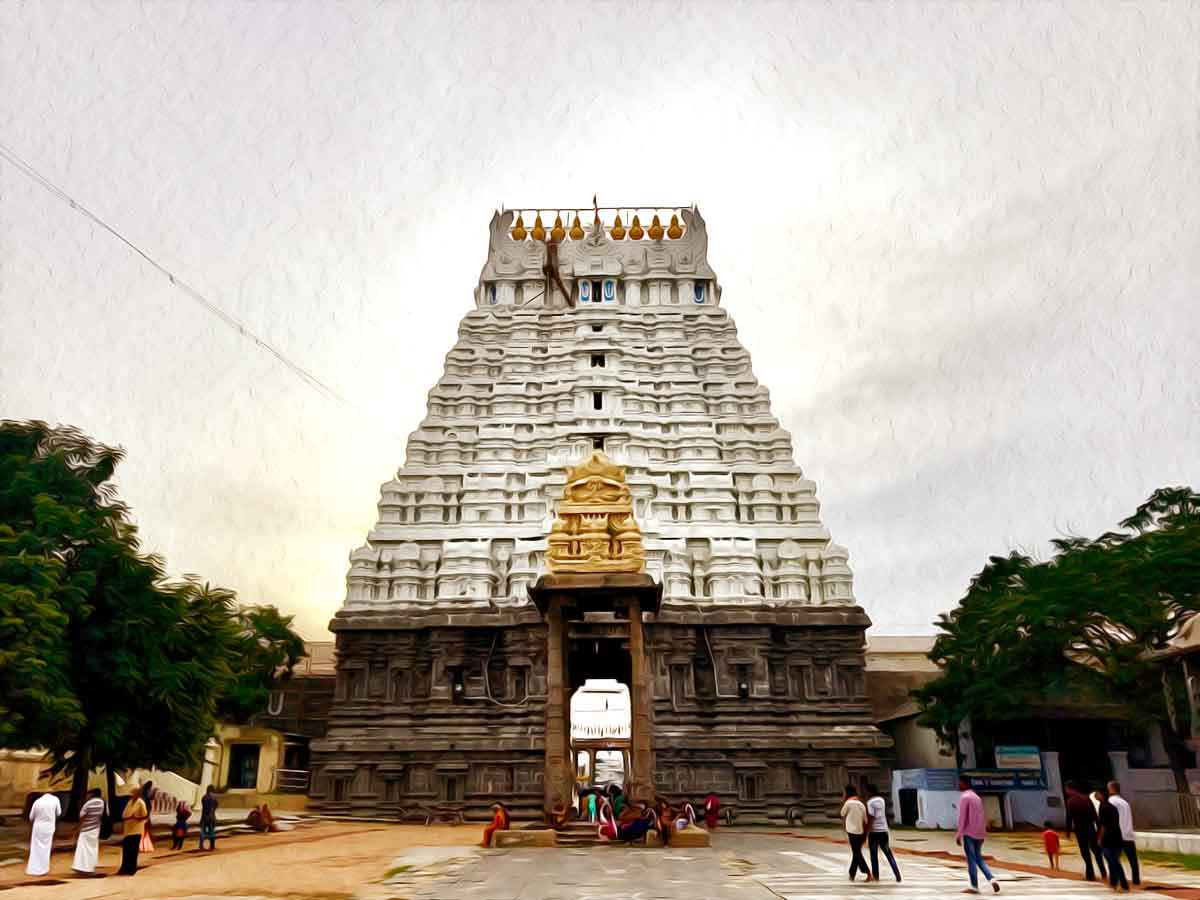Madras High Court noted that 'tolerance is the hallmark of Hinduism, devotees could not be denied their right to worship at any cost': directed authorities to allow chanting prayers at Sri Varadaraja Perumal Temple

On Tuesday, hearing a case concerning the right to worship of two Hindu sects, the Madras High Court noted that tolerance is the hallmark of Hinduism, reports Bar and Bench.
The Madras High Court bench led by Justice SM Subramaniam heard a petition to decide a dispute between two sects over chanting recitals at the Sri Varadaraja Perumal Temple in Tamil Nadu. A dispute had arisen between two sects – Vadagalai and Thengalai after the temple’s executive trustee had issued a notice prohibiting the Vadagalai sect from chanting recitals at the temple.
The petitioners representing the Vadagalai sect had urged the court to grant permission to chant prayers in the Sri Varadaraja Perumal Temple in Tamil Nadu, citing their fundamental right of worship. The petitioners stated that they were not disrespecting the rights conferred on the Thengalai sect by virtue of customary practices, however, they pleaded that their rights were being violated by preventing them from worshipping their guru.
However, the respondent argued that a decree from the year 1915 allowed only the Thengalai sect to recite at the temple.
Hearing the arguments, Justice SM Subramaniam pointed out that tolerance is the hallmark of Hinduism, and both sects should be allowed to hold recitals and pray as per their faith and customs. The judge also said that devotees could not be denied their right to worship at any cost and directed the authorities to allow both the Vadagalai and Thengalai sects to chant their prayers at the Sri Varadaraja Perumal Temple.
“Tolerance is the hallmark principle in Hinduism. Mutual understanding, respect, and glorifying the Lord alone will preserve the sanctity of the Temple activities, and therefore, both the sects are expected to do services to Lord Sri Varadaraja Perumal instead of fighting on trivial issues of this nature”, the judge observed.
 |
In its order, the Madras High Court also emphasised that religion may not lay down a code of ethical rules for its followers, but it may prescribe rituals and ceremonies regarded as integral parts of a religion.
“Therefore, the constitutional guarantee of freedom of religion enshrined in Article 25(1) extends even to rites and ceremonies associated with a religion,” Justice Subramaniam held.
Hence, in this regard, the court noted that the sentiments of both the sects should be respected, and mutual respect between them was of paramount importance.
The court also observed that every devotee has got a right to enter the temple and worship Lord Sri Varadaraja Perumal in the way he likes without affecting the rights of other devotees/worshippers and temple activities.
The court also noted that the Vadagalai sect would be provided with an opportunity so that they were not deprived of its primacy as they claimed by virtue of the 1910 decree.
The Madras High Court also imposed the rules for the traditions to be followed inside the Hindu temple, saying that the Thengalai sect shall be permitted to start their initial recital, namely Srisaila Dayapathram, and later, the Vadagalai sect shall be allowed to chant the initial recital namely Sri Ramanuja Dayapathram within 10 to 12 seconds each.
 |
Then, both the Thengalai sect and Vadagalai sect, along with ordinary devotees, shall be permitted to jointly chant Naalayira Divya Prabandham in an uninformed manner without any disruptions to the rituals and poojas or any inconvenience to the other devotees and worshippers.
“On completion of chanting of Naalayira Divya Prabandham by Vadagalai sect, Thengalai sect and ordinary devotees, jointly the final ritual namely Vazhithirunamam may be firstly chanted by Thengalai sect, i.e., “Manavalamamunigal Vaazhithirunamam” and after that, the Vadagalai sect shall be allowed to recite their concluding Mantra, i.e., “Desikan Vazhi Thirunamam” and accordingly, the entire process of rituals shall be concluded,” the court directed.
Earlier in February, the Madras High Court had issued a similar order directing a Hindu petitioner to exhibit tolerance after he moved the court, complaining about the use of loudspeakers in a newly constructed church in Neduvilai in the Kanyakumari district of Tamil Nadu.
The petitioner, identified as one C Kishore, had filed a writ petition in the Madras High Court wherein he challenged the permission given by the Kanyakumari District Collector to one Y Thangaraj to construct a Church. He complained that Thangaraj had been creating a ‘nuisance’ by conducting prayers through loudspeakers, both during the day and night.
The matter was heard by a Single Judge Bench of Justice CV Karthikeyan, who rejected the plea asking the petitioner to ‘show tolerance as he is Hindu’.
References:
opindia.com
 Support Us
Support Us
Satyagraha was born from the heart of our land, with an undying aim to unveil the true essence of Bharat. It seeks to illuminate the hidden tales of our valiant freedom fighters and the rich chronicles that haven't yet sung their complete melody in the mainstream.
While platforms like NDTV and 'The Wire' effortlessly garner funds under the banner of safeguarding democracy, we at Satyagraha walk a different path. Our strength and resonance come from you. In this journey to weave a stronger Bharat, every little contribution amplifies our voice. Let's come together, contribute as you can, and champion the true spirit of our nation.
 |  |  |
| ICICI Bank of Satyaagrah | Razorpay Bank of Satyaagrah | PayPal Bank of Satyaagrah - For International Payments |
If all above doesn't work, then try the LINK below:
Please share the article on other platforms
DISCLAIMER: The author is solely responsible for the views expressed in this article. The author carries the responsibility for citing and/or licensing of images utilized within the text. The website also frequently uses non-commercial images for representational purposes only in line with the article. We are not responsible for the authenticity of such images. If some images have a copyright issue, we request the person/entity to contact us at This email address is being protected from spambots. You need JavaScript enabled to view it. and we will take the necessary actions to resolve the issue.
Related Articles
- Hindu side filed reply in Supreme Court: 'Gyanvapi property belonged to Lord Adi Vishweshwar since time immemorial, even before the Islamic rule in India, and hence cannot be handed to anybody'
- Madras High Court: Do not take decision on melting Temple gold till Trustees are appointed
- 5 lakh kg of temple jewellery has been melted so far, DMK government planning to melt even more
- Madhya Pradesh HC accepted petition for stay on Muslims performing Namaz in the compound of Bhojshala monument: Read how an educational centre and a historic temple of Goddess Saraswati became Kamal Maulana mosque
- 'Found stone carvings of Hindu Gods-Goddesses, lotus, Seshnaag, Shrigar Gauri shrine distinctly visible, absolute remnants of ancient Hindu temple': Survey commissioner Ajay Mishra reports, Muslim side continuously uncooperative
- "Ayodhya hui hamari, ab Kashi-Mathura ki baari": Plea submitted in Mathura Court to secure Shahi Idgah Masjid to protect Hindu sacred artefacts after Shivling discovered at wuzukhana in Gyanvapi premises
- Supreme Court is all set to hear a Muslim side's petition against the survey of Gyanvapi complex after the survey team finds Shivling inside the disputed structure: 3 member bench headed by Justice DY Chandrachud
- Blast from the past: why DMK government’s idea to melt temple gold is dangerous?
- Chennakeshava temple in Belur kicks off 'Rathotsava festival' with Quran recitation: Earlier temple administration requested Muslims to vacate their shops, however, Govt gives their nod for non-Hindus to set up stalls throughout festival
- Plea rejected by Allahabad High Court to open 22 'closed rooms' of Taj Mahal to research the real history, says "matter should be left to historians. Please don't take us to the historical facts which you believe"
- Hours after Shivling discovered inside disputed Gyanvapi, AIMIM chief Asaduddin Owaisi provokes Muslims against court-ordered proceedings amidst chants of ‘Naara-e-Takbeer’ and ‘Allahu Akbar
- Shivling discovered in the Gyanvapi complex during a survey after the water was pumped out of a well that Muslims were using as 'Wuzukhana' for washing their hands and feet before offering Namaz
- In a major development, Mathura court allowed a plea to remove the disputed structure of the Shahi Idgah Mosque near Krishna Janmabhoomi for hearing: suit filed in the name of "Bhagwan Sri Krishna Virajman"
- Why Hindus not claiming their temples back from the Government control: Is pro-Hindu govt will always be in power
- Does the Places of Worship Act 1991, really forbids any transformation in worship’s religious character after August 15, 1947? Gyanvapi compound may lead to its exemption if found more than 100 years old













